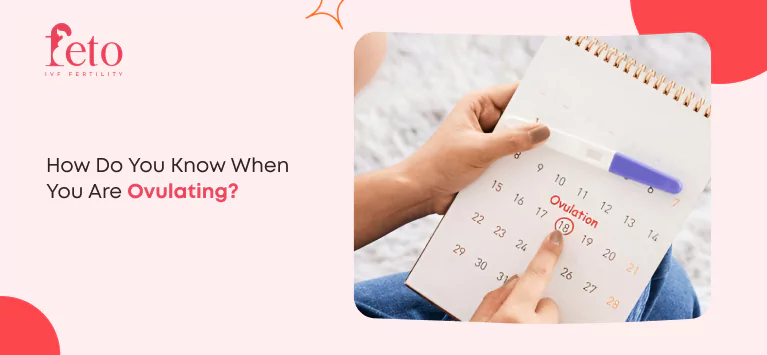
How Do You Know When You Are Ovulating?
What is Ovulation?
Ovulation refers to the time when a mature egg is released from one of the ovaries in a given month (this occurs about once a month for a fertile woman – usually around the middle of the month). From there, the egg will travel through the fallopian tube and into the uterus, where it may meet sperm. Being familiar with your ovulation is important whether you’re trying to get pregnant, or avoid pregnancy naturally.
Why is Tracking Ovulation Helpful?
Monitoring ovulation allows you to become familiar with your most fertile days for conception. Knowing your ovulation can also give you insight into your menstrual cycle health and hormonal balance. If you’re unsure about your ovulation window, don’t worry — your body sends out signs that can help you know when it’s happening.
Signs of Ovulation
Your body gives small signals when ovulation is near. These signs can be tracked easily at home. Here are a few of the most typical signs of ovulation to watch for:
- Light Spotting: Some women experience slight bleeding or spotting during ovulation. It is generally light and does not last long.
- Breast Tenderness: Your breasts may feel sore or swollen because of hormonal changes. This usually occurs right before or after ovulation.
- Increased Libido: Many women have an increased desire for sex around this time. This is a natural behaviour by the body to promote reproduction.
- Heightened Senses: Some women experience heightened senses of smell, taste, or sight during ovulation. This happens due to hormonal changes.
- Mild Pelvic Pain: Some women have mild aches or pain on one side of the lower belly during ovulation. This sensation, known as ‘mittelschmerz,’ can last anywhere from a few hours to an entire day.
- Cervical Mucus Changes: The vaginal discharge changes texture during ovulation. It becomes thin, clear, stretchy, and slippery like egg whites to help sperm travel quickly to the egg and survive longer.
Physical and Emotional Changes
Ovulation also impacts your physical and emotional feelings. Hormones play a large role in both mood and energy in your body. Here are common changes that you may notice:
- Bloating: Some women may feel bloated or heavier during ovulation due to hormonal effects on water retention.
- Increased Energy: Many women feel more energetic and positive during ovulation. This can also make you feel more productive.
- Mood Swings: Hormonal changes can cause extra emotional moments. One moment, you’re happy, and the next, you’re irritated.
How to Confirm Ovulation?
If you want to be sure that you are ovulating, some tools and methods can help. There are a few simple ways to confirm ovulation, which are:
- Ovulation Test Kits: These Ovulation Test Kits will detect a hormone called LH in your urine. A positive surcharge in LH means ovulation will occur in approximately one-half days or more.
- Basal Body Temperature: Using a BBT thermometer to track sleeping temperature every morning before getting out of bed. A small rise in temperature shows ovulation has just happened.
- Ultrasound or Blood Testing: Depending on the reason the woman is trying to conceive, some physicians may recommend ultrasound or blood testing for more accurate tracking regarding ovulation.
- Apps for Tracking Ovulation: There are also a lot of apps nowadays that help track menstrual cycles is a straightforward process of documenting the dates your periods began and ended. These will use this information to estimate a fertile window.
Best Time to Try for Pregnancy
If you’re trying to get pregnant, timing is key. You’re most fertile in the days leading up to and just after ovulation. A few key fertility windows are as follows:
- Egg Lifespan: Once released, an egg lives for about 12–24 hours. This is the prime time for fertilization.
- Sperm Lifespan: Sperm can survive for up to 5 days in the body. Thus, even sex before you ovulate can result in pregnancy.
- Fertile Window: This typically refers to the five days before you ovulate and the day you ovulate. Engaging in vaginal intercourse during this time will increase your chances of getting pregnant.
When to Speak to a Doctor?
If you are tracking ovulation and trying for pregnancy for over a year, you should speak to the doctor. The reasons below are signs to speak with a doctor:
- No Signs of Ovulation: If you don’t notice any physical changes, then a doctor will refer you to test your hormone levels.
- Painful Periods: If you have intense cramping or pain with your period, you may have something like PCOS or endometriosis.
- Irregular Periods: If you have a very long cycle, a very short cycle, or a cycle that is not stable, then your periods may affect your ability to ovulate.
Common Myths about Ovulation
There are many misconceptions about ovulation and fertility. The following are the truths behind those myths:
1. Myth: You Can Feel Ovulation Every Time
Truth: Some women never feel any signs. It doesn’t mean you’re not ovulating.
2. Myth: Ovulation Always Occurs on Day 14
Truth: That’s not the case. Each cycle is different for women. Ovulation doesn’t always happen on day 14, it can occur earlier or later, depending on the individual.
3. Myth: You Can’t Get Pregnant During Period
Truth: Rare, but possible. Sperm can live outside of the body for multiple days, and ovulation is not strictly on day 14 of every cycle.
Final Thoughts
Understanding when you ovulate is one of the most important steps in being aware of your reproductive health. It is key to both planning for pregnancy and preventing pregnancy. By being in tune with your body and using some simple tools, you can own your fertility journey. If you still feel unsure or unsure what to do, ask for medical help.
